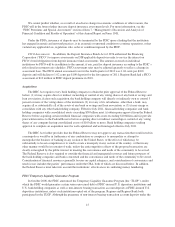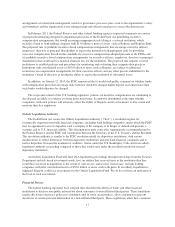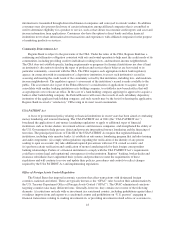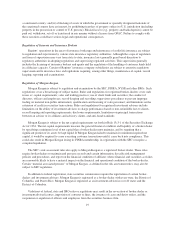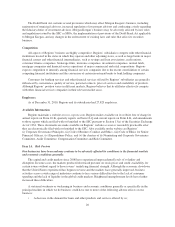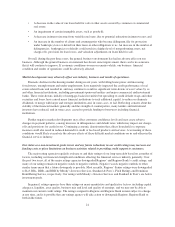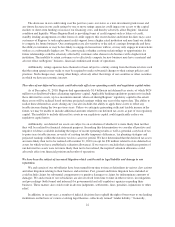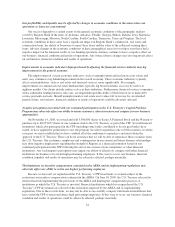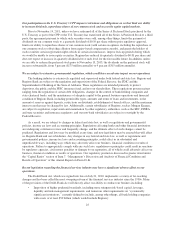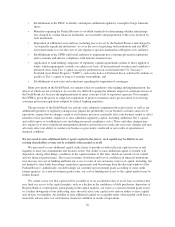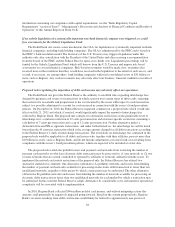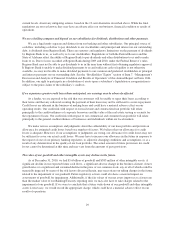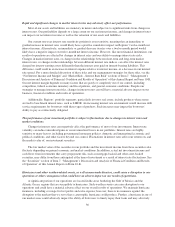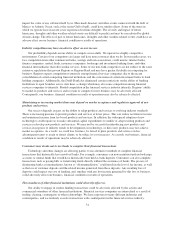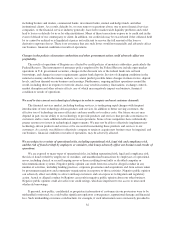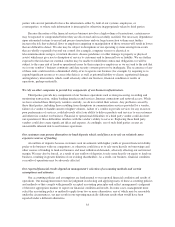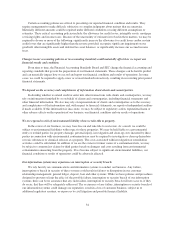Regions Bank 2010 Annual Report Download - page 38
Download and view the complete annual report
Please find page 38 of the 2010 Regions Bank annual report below. You can navigate through the pages in the report by either clicking on the pages listed below, or by using the keyword search tool below to find specific information within the annual report.Our profitability and liquidity may be affected by changes in economic conditions in the areas where our
operations or loans are concentrated.
Our success depends to a certain extent on the general economic conditions of the geographic markets
served by Regions Bank in the states of Alabama, Arkansas, Florida, Georgia, Illinois, Indiana, Iowa, Kentucky,
Louisiana, Mississippi, Missouri, North Carolina, South Carolina, Tennessee, Texas and Virginia. The local
economic conditions in these areas have a significant impact on Regions Bank’s commercial, real estate and
construction loans, the ability of borrowers to repay these loans and the value of the collateral securing these
loans. Adverse changes in the economic conditions of these geographical areas for over three years have had a
negative impact on the financial results of our banking operations and may continue to have a negative effect on
our business, financial condition and results of operations. Any future adverse changes may also negatively effect
on our business, financial condition and results of operations.
Improvements in economic indicators disproportionately affecting the financial services industry may lag
improvements in the general economy.
The improvement of certain economic indicators, such as unemployment and real estate asset values and
rents, may continue to lag behind improvement in the overall economy. These economic indicators typically
affect certain industries, such as real estate and financial services, more significantly. For example,
improvements in commercial real estate fundamentals typically lag broad economic recovery by twelve to
eighteen months. Our clients include entities active in these industries. Furthermore, financial services companies
with a substantial lending business, like ours, are dependent upon the ability of their borrowers to make debt
service payments on loans. Should unemployment or real estate asset values fail to recover for an extended
period of time, our business, financial condition or results of operations could be adversely affected.
Negative perceptions associated with our continued participation in the U.S. Treasury’s Capital Purchase
Program may adversely affect our ability to retain customers, attract investors and compete for new business
opportunities.
On November 14, 2008, we issued and sold 3,500,000 shares of Series A Preferred Stock and the Warrant to
purchase up to 48,253,677 shares of our common stock to the U.S. Treasury as part of the CPP. Several financial
institutions which also participated in the CPP (including some banks considered to be our peer banks) have
exited, or have applied for permission to exit, the program. In order to repurchase one or both securities, in whole
or in part, we must establish that we have satisfied all of the conditions to repurchase and must obtain the
approval of the U.S. Treasury. There can be no assurance that we will be able to repurchase these securities from
the U.S. Treasury. Our customers, employees and counterparties in our current and future business relationships
may draw negative implications regarding the strength of Regions as a financial institution based on our
continued participation in the CPP following the exit of one or more of our competitors or other financial
institutions. Any such negative perceptions may impair our ability to effectively compete with other financial
institutions for business or to retain high performing employees. If this were to occur, our business, financial
condition, liquidity and results of operations may be adversely affected, perhaps materially.
The limitations on incentive compensation contained in the ARRA and its implementing regulations may
adversely affect our ability to retain our highest performing employees.
Because we have not yet repurchased the U.S. Treasury’s CPP investment, we remain subject to the
restrictions on incentive compensation contained in the ARRA. On June 10, 2009, the U.S. Treasury released its
interim final rule implementing the provisions of the ARRA and limiting the compensation practices at
institutions in which the U.S. Treasury is invested. Financial institutions which have repurchased the U.S.
Treasury’s CPP investment are relieved of the restrictions imposed by the ARRA and its implementing
regulations. Due to these restrictions, we may not be able to successfully compete with financial institutions that
have exited the CPP to retain and attract high performing employees. If this were to occur, our business, financial
condition and results of operations could be adversely affected, perhaps materially.
24



